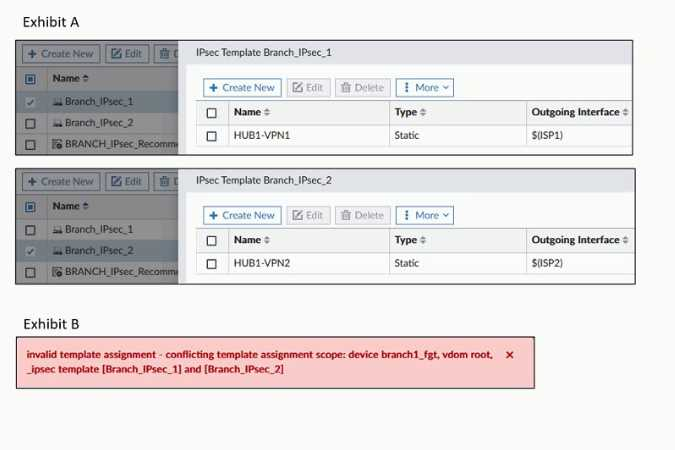Refer to the exhibits.

Exhibit A shows two IPsec templates to define Branch_IPsec_1 and Branch_IPsec_2. Each template defines a VPN tunnel.
Exhibit B shows the error message that FortiManager displayed when the administrator tried to assign the second template to the FortiGate device.
Which statement best explain the cause for this issue?
- You can assign only one template with a tunnel of fype static to each FortiGate device
- You can define only one IPsec tunnel from branch devices to HUB1.
- You can assign only one IPsec template to each FortiGate device.
- You should review the branch1_fgt configuration for the already configured tunnel with the name HUB1-VPN2.
Answer(s): C
Explanation:
The error message in Exhibit B indicates a conflicting template assignment. This occurs because FortiManager does not allow the assignment of multiple IPsec templates that define VPN tunnels with the same name or settings to the same FortiGate device. The conflict arises from trying to assign a second IPsec template to a device that already has one assigned.
Reference:
This is based on Fortinet's best practices and administrative guidelines which state that each FortiGate device should be assigned a unique IPsec template to avoid configuration conflicts.